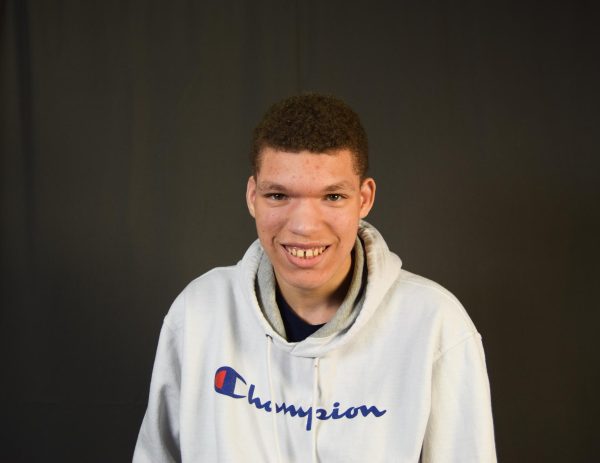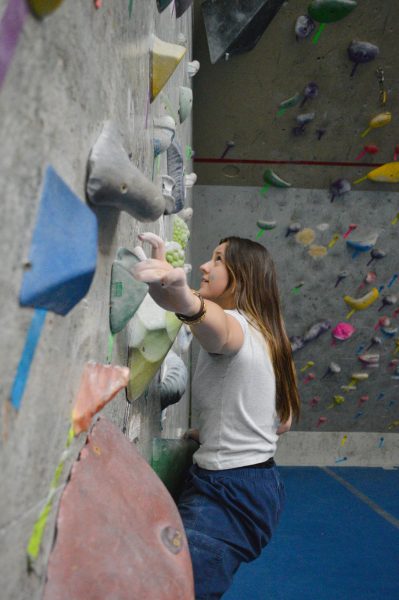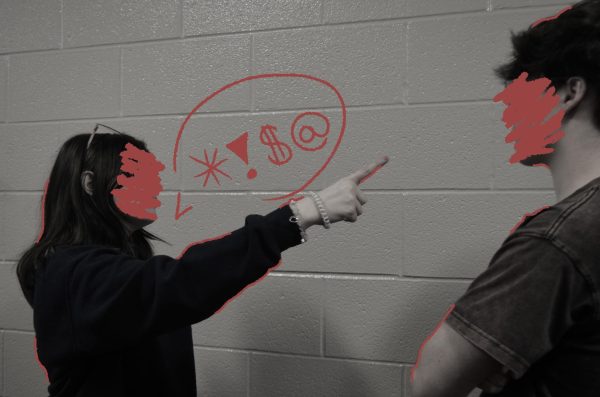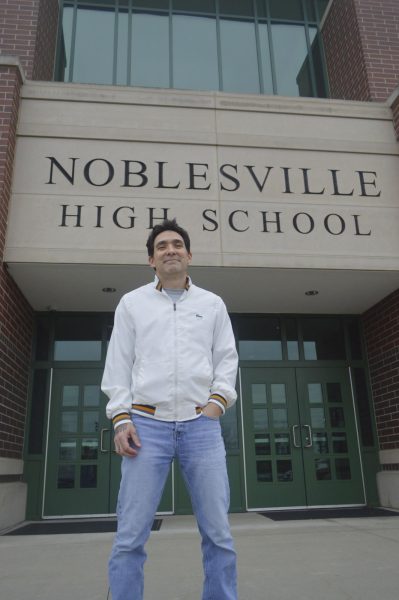Talk or Block: Snapchat’s recent AI feature has been controversial amongst users

June 13, 2023
Recent technology has brought the future straight to students’ fingertips. Technological advancements of drastic degrees are being presented to the public eye in ways that we didn’t imagine were yet possible. While on the surface, new developments in modern technology may seem like harmless fun. The deeper you dig, the more alarming the growth of artificial intelligence, or AI, gets. AI is a development in technology that allows computer systems to mimic human behavior. Between countless privacy issues and disturbing messages from supposed robotic ‘friends,’ being a teenager with access to technology is more dangerous than it has ever been.
The normalization of AI use in every day life has been a trending topic across the world in recent years. In the past year, the technology has made significant progress in many different fields, including music, art, writing, and more. With the rising popularity of AI and the constantly evolving nature of the field, some companies have tried to capitalize on it. Snapchat, one of the most widely used social media apps around the world, recently added a new feature called “My AI” which is an AI bot that answers questions and simulates conversations. But the most alarming issue of all is that users have been unable to get rid of this unwelcome ‘friend’ without paying for Snapchat’s premium service, Snapchat Plus. The reception of this new feature has been mixed among frequent users of the app, with some people seeing it as a safe, fun, and innocent feature, while others claim that there is inherent and malicious harm behind the technology. Google play store user @bugby is one of many that left reviews detailing their negative experiences with the bot.
“It is incredibly annoying and predatory,” @bugby said. “It is ridiculous that you have to pay to remove a feature that gathers your information without your consent.”
With the popularity of the app’s new AI update, many NHS students and even teachers have had their own encounters and opinions surrounding it and other AI programs. Math teacher Katelyn O’Reilly believes that the new feature has made her job harder.
“In an academic environment, using AI is equivalent to cheating; it just adds another element [or] platform to look out for,” O’Reilly said.
While there have been some key issues with the new feature, such as the opportunity for students to have easier access to finding answers without doing the proper work for them, she thinks that it might not be all bad. O’Reilly has used it as a bonding experience between her and her students.
“I think from a security perspective it is concerning, but at the current state, I would say it is not harmful,” O’Reilly said. “AI has been fun to learn about through my students.”
Many students have felt concern surrounding the new feature. Sophomore Rowan Segner has encountered seemingly concerning issues with the AI.
“It does have some unexpected behaviors as others have pointed out, such as the way it can recognize and analyze images while claiming that it in fact cannot see images,” Segner said. “I think that any sort of AI program can be exploited with enough effort.”
Many people have raised potential concerns on whether the bot can breach the privacy of its users. Segner believes that the owners of Snapchat might have malicious intentions.
“Privacy is a very valid concern because the AI has the ability to store information on a person as well as images that are sent,” Segner said.
Despite the several negative reviews that Snap Inc has received over the past month, it does not seem that business has slowed down for them. They have still yet to issue a response regarding the controversies, and they likely will not respond anytime soon. English teacher James Valmassoi feels that Snapchat is complicit in the damage AI is causing.
“Social media and other tech have already divided and distanced people enough; we certainly don’t need a machine that can simulate fun’” conversation to isolate us further,” Valamassoi said. “Just about every working field will be affected somehow. Change isn’t coming; it’s here, and we’re catching up.”











